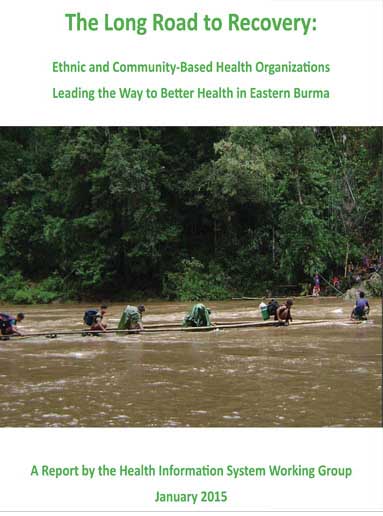Health (110 found)
Advance Unedited Version: Report of the Special Rapporteur on the situation of human rights in Myanmar, Yanghee LEE
Since 2011, Myanmar has undergone far-reaching changes that have affected many aspects of life in the country. However, there continue to be signs of backtracking by the Government and increasing concerns over discrimination and ethnic conflict […]
• • •Amnesty International Annual Report – Myanmar Chapter
Despite ongoing political, legal and economic reforms, progress on human rights stalled, with some backward steps in key areas. The situation of the Rohingya deteriorated, with ongoing discrimination in law and practice exacerbated by a dire humanitarian situation. Anti-Muslim violence persisted, with the authorities failing to hold suspected perpetrators to account. Reports of abuses of international human rights and humanitarian law in areas of armed conflict persisted. Freedoms of expression and peaceful assembly remained severely restricted, with scores of human rights defenders, journalists and political activists arrested and imprisoned. Impunity persisted for past crimes […]
• • •The Long Road to Recovery: Ethnic and Community-based Health Organizations Leading the Way to Better Health in Eastern Burma
 A new report, based on the first large-scale health survey in eastern Burma since recent ceasefires, shows some improved health indicators, linked to programming of local ethnic health providers, but highlights that sustained improvements to the overall health of conflict-affected communities remain dependent on the peace and reform process, and may take decades […]
A new report, based on the first large-scale health survey in eastern Burma since recent ceasefires, shows some improved health indicators, linked to programming of local ethnic health providers, but highlights that sustained improvements to the overall health of conflict-affected communities remain dependent on the peace and reform process, and may take decades […]
Myanmar: Hardships Abound in Violence-Stricken Rakhine State
Sporadic intercommunal violence and continuing tensions mean essential services are out of reach for many in Rakhine state. The ICRC and the Myanmar Red Cross Society are helping the local authorities to rebuild livelihoods for people affected on both sides of the communal divide […]
• • •Briefing Regarding Myanmar Peace Team’s Meetings with Mae Tao Clinic Team
This briefing paper provides details about the recent meetings with the Myanmar Government Peace Team led by Minister U Aung Min. The paper clarifies Mae Tao Clinic’s position on continuing to provide crucial health services on the Thai-Burma border and identifies three key areas that the government must prioritize in order to begin addressing Burma’s current underfunded and highly centralized health system […]
• • •Separated by Borders: United By Need, An Assessment of Reproductive Health on the Thai-Burma Border
The region of eastern Burma is mired in conflict and human rights abuses. The former Myanmar military junta and the new civilian government, are responsible for widespread human rights violations throughout […]
• • •Community-Based Assessment of Human Rights in a Complex Humanitarian Emergency: the Emergency Assistance Teams-Burma and Cyclone Nargis
Cyclone Nargis hit Burma on May 2, 2008, killing over 138,000 and affecting at least 2.4 million people. The Burmese military junta, the State Peace and Development Council (SPDC), initially blocked international aid to storm victims, forcing community-based organizations such as the Emergency Assistance Teams-Burma (EAT) to fill the void, helping with cyclone relief and long-term reconstruction. Recognizing the need for independent monitoring of the human rights situation in cyclone-affected areas, particularly given censorship over storm relief coverage, EAT initiated such documentation efforts […]
• • •From Rice Cooker to Autoclave at Dr. Cynthia’s Mae Tao Clinic
Twenty Years of Health, Human Rights and Community Development in the Midst of War
The book relates the oral history of the clinic as a tribute to our community, staff and supporters.
Stateless and Starving Persecuted Rohingya Flee Burma and Starve in Bangladesh
In recent months Bangladeshi authorities have waged an unprecedented campaign of arbitrary arrest, illegal expulsion, and forced internment against Burmese refugees. In this emergency report Physicians for Human Rights (PHR) presents new data and documents dire conditions for these persecuted Rohingya refugees in Bangladesh. PHR’s medical investigators warn that critical levels of acute malnutrition and […]
• • •On the Edge of Survival
On the Edge of Survival released Chin Human Rights Group (CHRO) is a report about the rat infestation and food crisis in Chin State finds that food shortages have spread to seven townships in Chin State as well as parts of Sagaing Division […]
• • •
 All posts
All posts